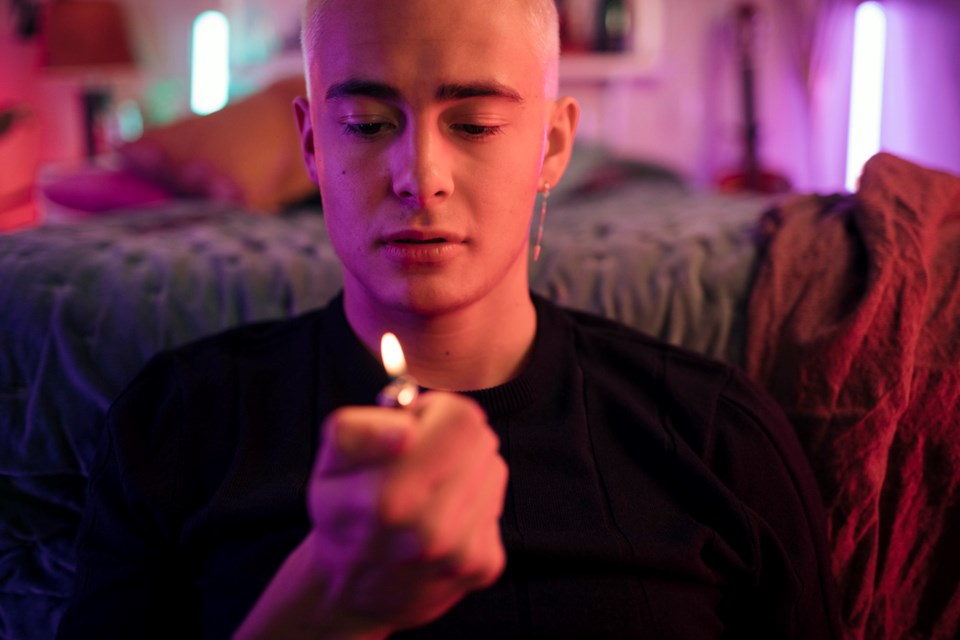For the most part, social media trends involve harmless dances or comedic shake-related japes but they can occasionally put young people at risk.
Back in early May, a TikTok challenge involving fire (one of several) left a young American boy in the ER with severe burns all over his body leading to conversations, even on Canadian media platforms, around children playing with fire. One so-called "burn challenge" has youth spraying aerosol paint into a lighter's flame.
Vancouver's St. Paul’s Hospital Emergency Department has not seen an increase in burn patients recently, however, Dr. Erin Kenny the head of the Emergency Department, tells V.I.A. she strongly discourages any of her patients, as well as her children, from participating in these kinds of challenges.
"It sounds incredibly dangerous with the potential to cause significant bodily harm," Kenny says.
Vancouver health officials aren't able to share specific details or statistics about burn cases due to patient confidentiality, however, BC Children’s Hospital has more than 1,000 visits for burn-related treatments and follow-up appointments each year. Dr. Sally Hynes, a pediatric plastic surgeon and director of the hospital's burn program, confirms that BC Children's has seen an increase in the severity of burn injuries compared to previous years.
Hynes also says regardless of numbers, even a handful of cases due to fire-related challenges can have “devastating life-altering consequences.”
“If the numbers aren’t huge, the impact is,” she says.
BC Children’s Hospital's Chief Operating Officer Sarah Bell tells V.I.A. in an emailed statement: "We are aware of older children and teens trying different 'fire challenges' on social media, like TikTok. We can’t stress strongly enough how even trying one of these challenges can have devastating effects, including the loss of limbs or death."
The consequences of playing with fire
Children with burn injuries require specialized care and a highly trained team of experts to not only treat the physical injuries but also to care for the emotional well-being of both the patient and the family.
Not only are burns incredibly painful and susceptible to infection, the psycho-social consequences can be devastating, according to Hynes.
They can result in lifelong scars, and functional impairment, and impact the patient and their families for the rest of their lives.
Both Hynes and Bell stress that even a single attempt at one of these challenges can have a huge impact on a teen's life, as well as on their whole family, school, and community.
“When you’re playing with flames, especially with accelerants, the situation can get out of hand very quickly,” cautions Hynes. “It can hurt those around you.”
“Please stop and think, and do not try any sort of challenge on social media involving fire or physical danger,” Bell echoes in warning to teens considering taking part.
The pair address parents and caregivers, encouraging them to keep an eye on kids around flames or campfires (especially at this time of year) and to have conversations with them about the serious consequences of playing with fire.
Why do kids play with fire?
Teens and tweens playing with fire is nothing new, but the question remains: What is the appeal?
Hynes suggests that children, in particular, are intrigued by fire. They’re drawn to it and don’t necessarily comprehend the extent of the danger, whereas older teens face social pressure to take part in these types of risks.
“I’d like children to understand that fire is not a toy,” she says.
Alex Mazarolle (A.K.A. Ally Maz) has run a retreat for teenage girls and non-binary youth for 12 years and says that young people "want to feel something." From her perspective, the internet can dull experiences and they search for extremes to help them feel something, regardless if it's something dangerous.
It's also a form of rebellion she says, which is consistent with the age group.



